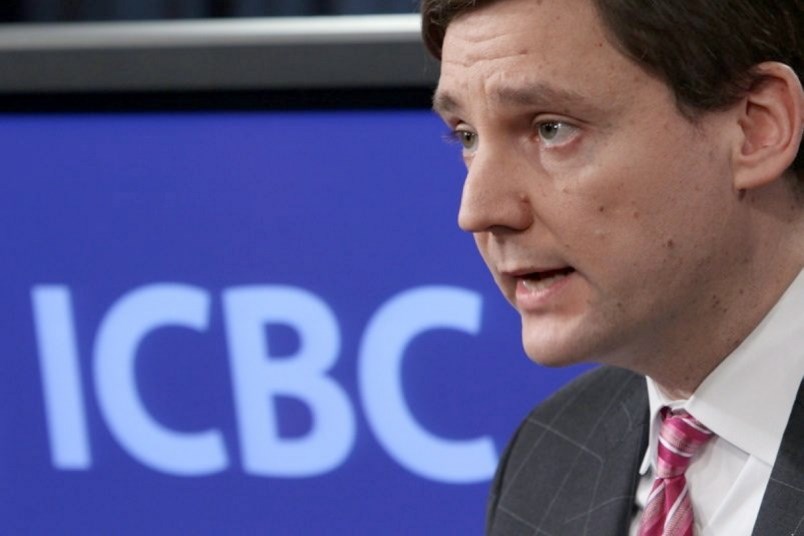The B.C. government will limit the number of “adversarial experts” who can testify in auto injury claims, Attorney General David Eby announced this morning, in an attempt to stem the $1-billion-a-year losses at the Insurance Corp. of B.C.
“The current system permits unlimited use of adversarial experts and expert reports by both sides of litigation, creating unsustainable costs and unacceptable delays,” Eby said. “We’re not going to allow unlimited adversarial experts anymore.”
Effective immediately, people injured in car crashes will be able to use one expert and report for fast-track claims under $100,000 and up to three experts and reports for all other claims. Expert reports typically include statements from medical experts and can address wage loss, future wage loss and future medical care.
The government is also considering making this rule applicable to all personal injury claims as of Feb. 1, 2020.
The reforms to the B.C. Supreme Court Civil Rules Regulation could save “in excess of $400 million,” Eby said, by encouraging earlier settlements and reducing the costs of settling vehicle injury claims. He added those savings depend on how lawyers and judges respond to the changes.
Judges will have the power to permit additional court-appointed or joint experts at its discretion, thus limiting the government’s cap.
The Trial Lawyers Association of B.C. said in a statement it is concerned “that the Attorney General, who is responsible for the administration of justice for all British Columbians, is forcing such severe restrictions on a victim's right to prosecute her or his claim to the sole benefit of one party, ICBC.”
Eby is forcing the changes “unilaterally”, without public debate in the legislature and despite protests from the independent Rules Committee, which is comprised of B.C. Supreme Court justices and senior lawyers including lawyers who do defense work for ICBC.
“Time and again this government seems to favor ICBC's financial interests over the legal rights of British Columbians, and this rush to pass restrictions on how victims of negligence must prove their cases at law is the most recent illustration of making car accident victims pay for reckless driving,” the association said.
Eby said he has no doubt that some lawyers will be concerned about the changes, and “we expect they will be subject to multiple court challenges.”
He said similar reforms in other provinces have survived legal challenges. Alberta and Ontario, for example, limit the number of experts in motor vehicle injury claims.
It’s important, Eby said, to strike a balance between protecting British Columbians injured in motor vehicle accidents and finding ways to improve the current system, thus limiting skyrocketing insurance premiums.
“We hope that this change in limiting adversarial experts will encourage greater use of more neutral, jointly-approved, jointly-appointed independent experts to help the courts determine the value of injury claims,” Eby said. “And this overtime will shift the culture of the use of experts in our justice system.”
The changes were announced in response to ICBC’s third quarter financial report released last week that showed the insurance agency posted a net loss of $860 million in the first nine months of its fiscal year, putting it on track to lose $1.18 billion for the full year.
This is largely blamed on prolonged legal battles with people injured in crashes who are demanding higher settlements, Eby said.
ICBC reported that the average cost of litigated injury claims has jumped by 20 per cent to $121,826 in 2018 from $101,920 in 2017. ICBC is also paying 21 per cent more for the use of medical experts, a cost which in most cases, must be -covered by the public insurer.
A review of 1,200 injury files in excess of $100,000 found that the injured person’s lawyer presented an average of six medical experts, many with overlapping skills, ICBC said.
The new rules will not apply to claims in which expert reports have already been commissioned and served, Eby said.
The cap on experts follows the lead of Australia and the UK, which “have tackled this problem very aggressively,” Eby said. In the UK, personal injury lawsuits can include one joint expert with the permission of a judge and in Australia, no experts can be used unless explicitly permitted by a judge.
- Katie DeRosa, Times Colonist



